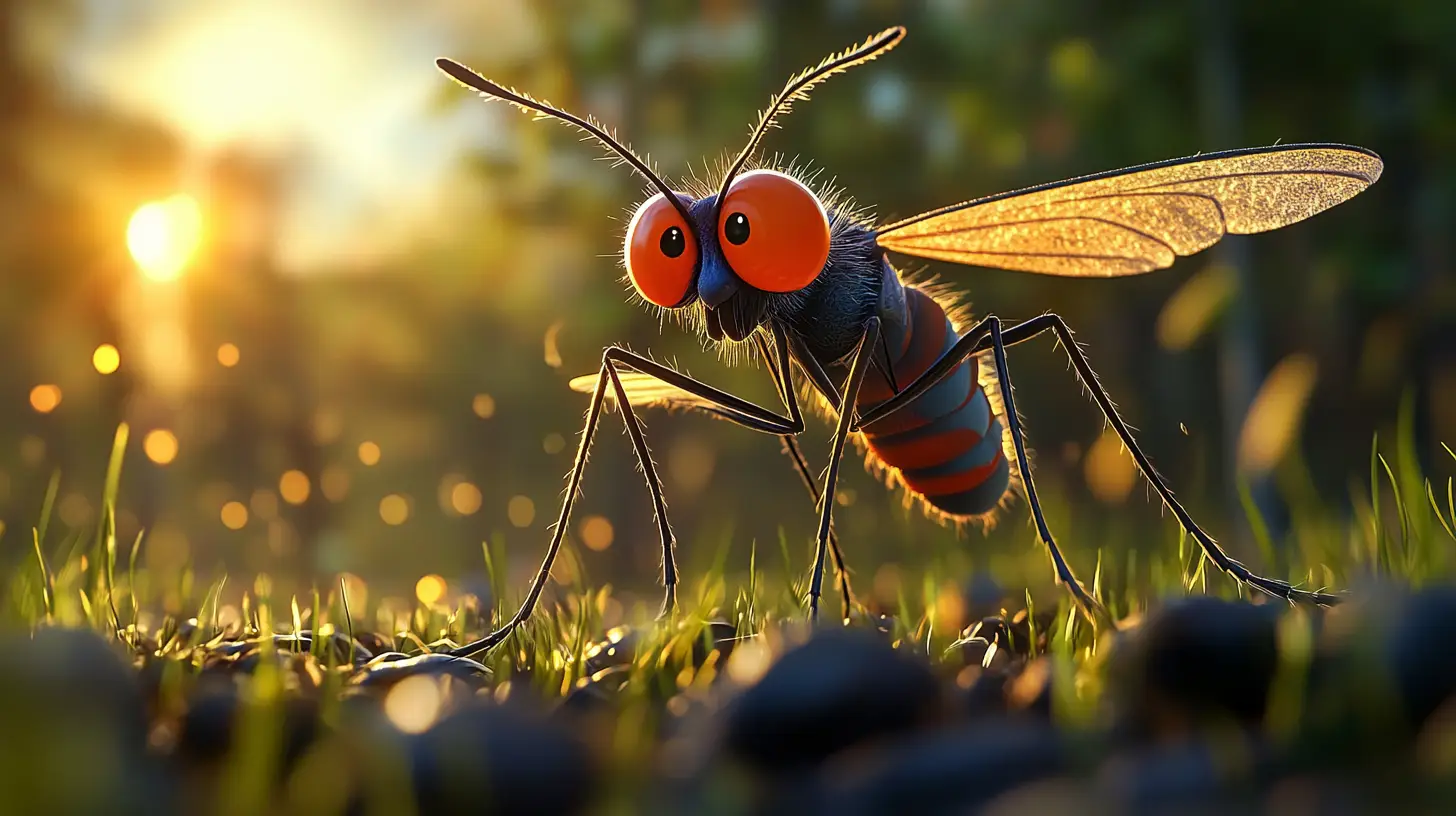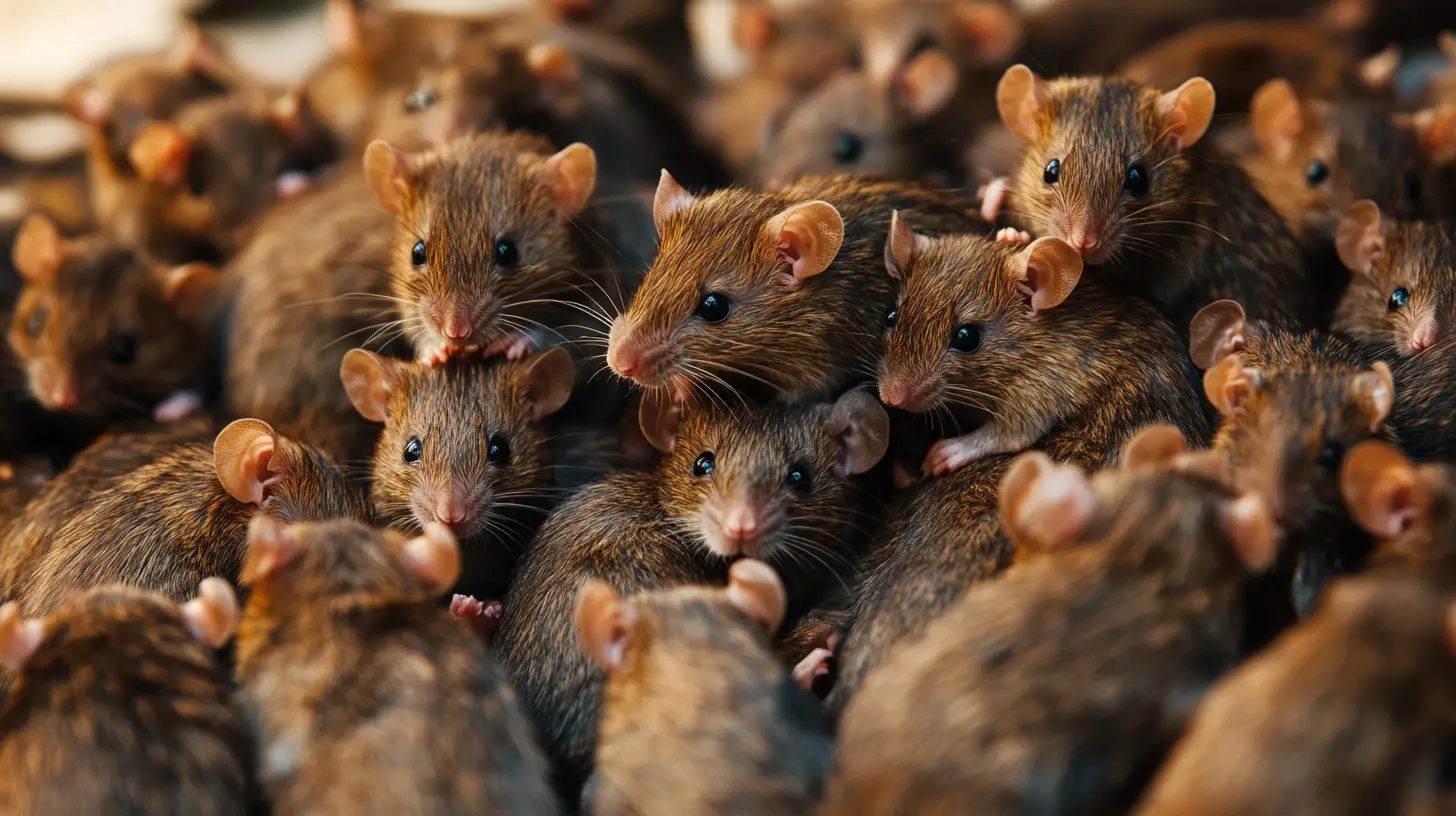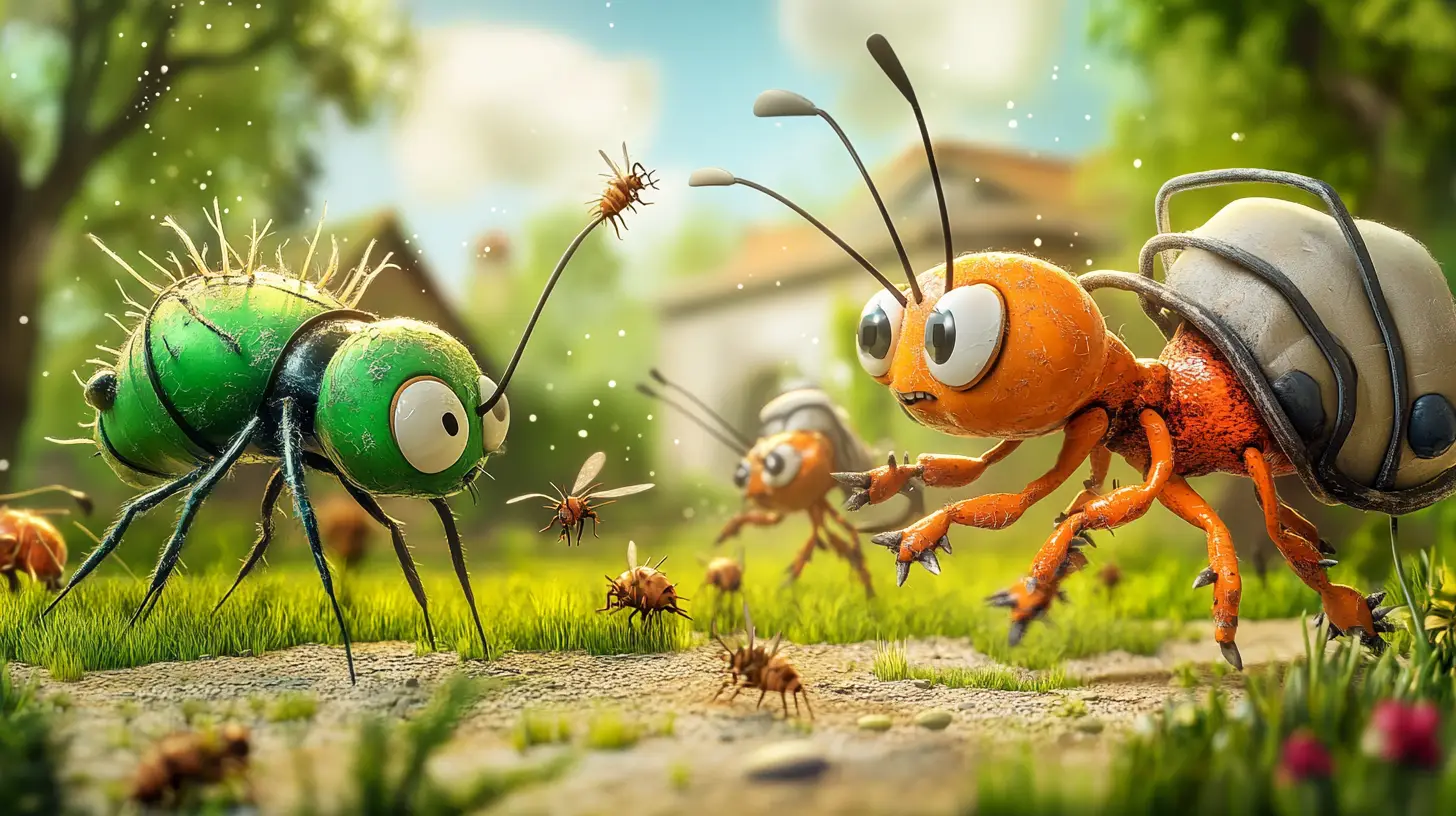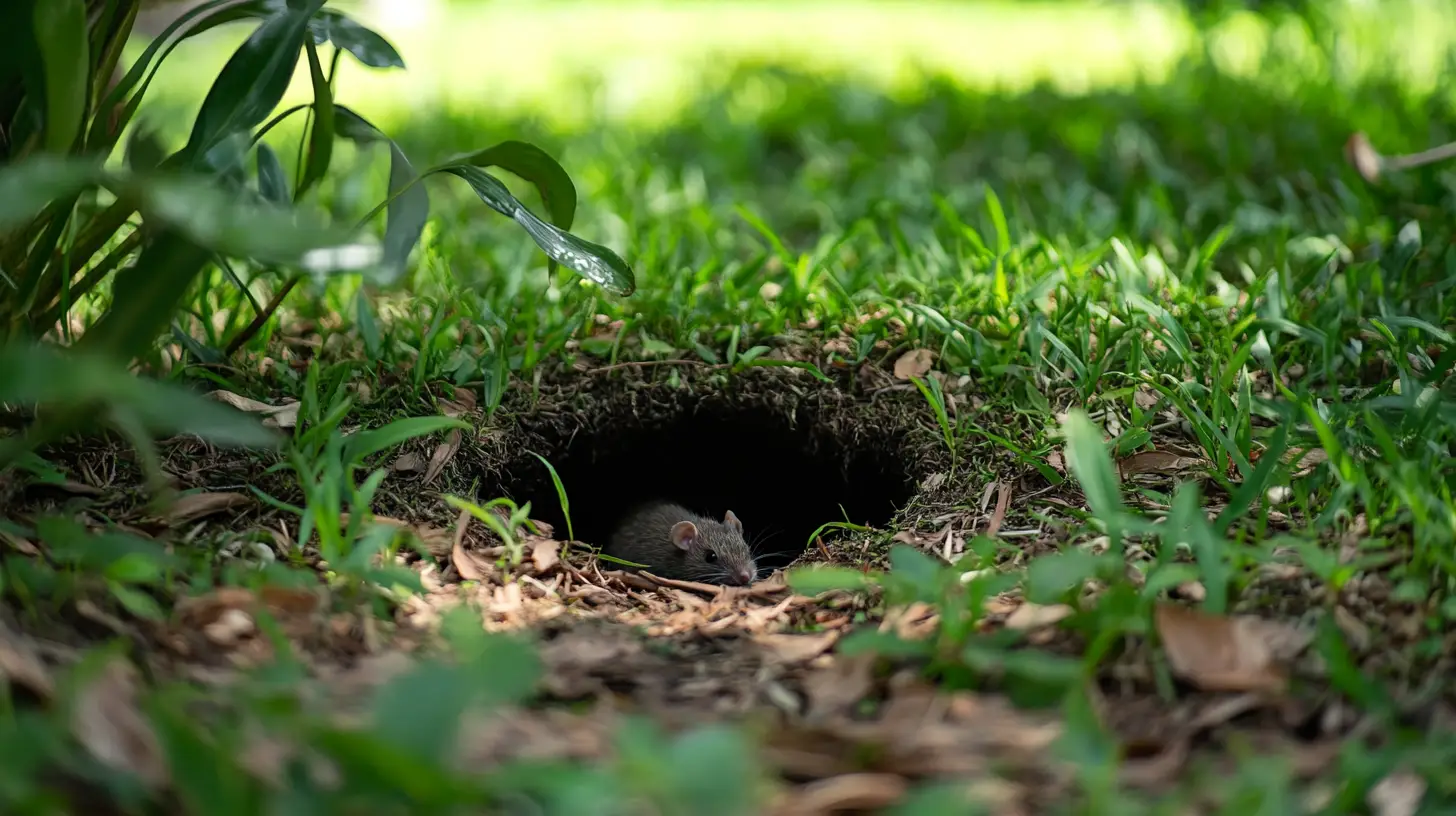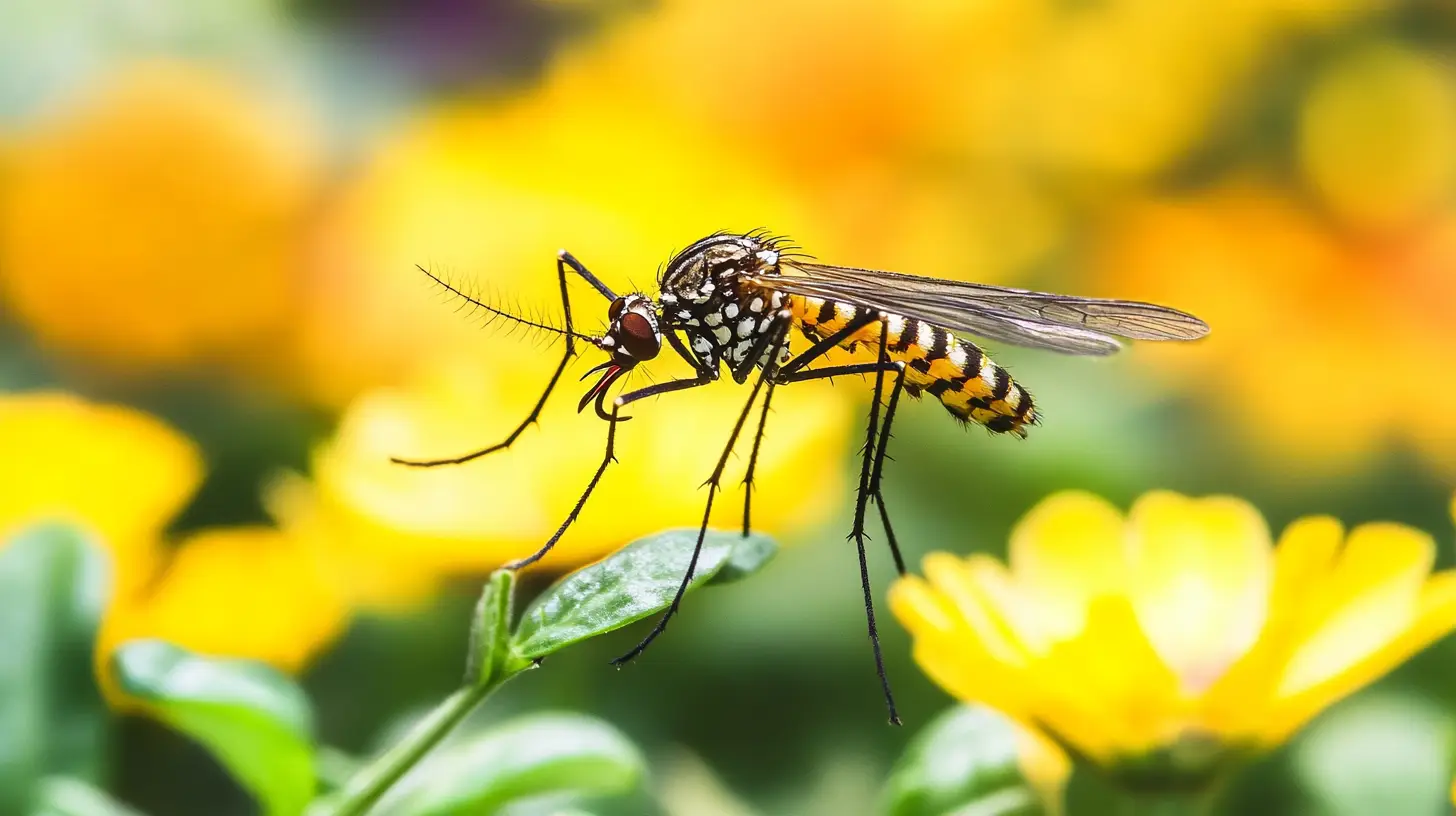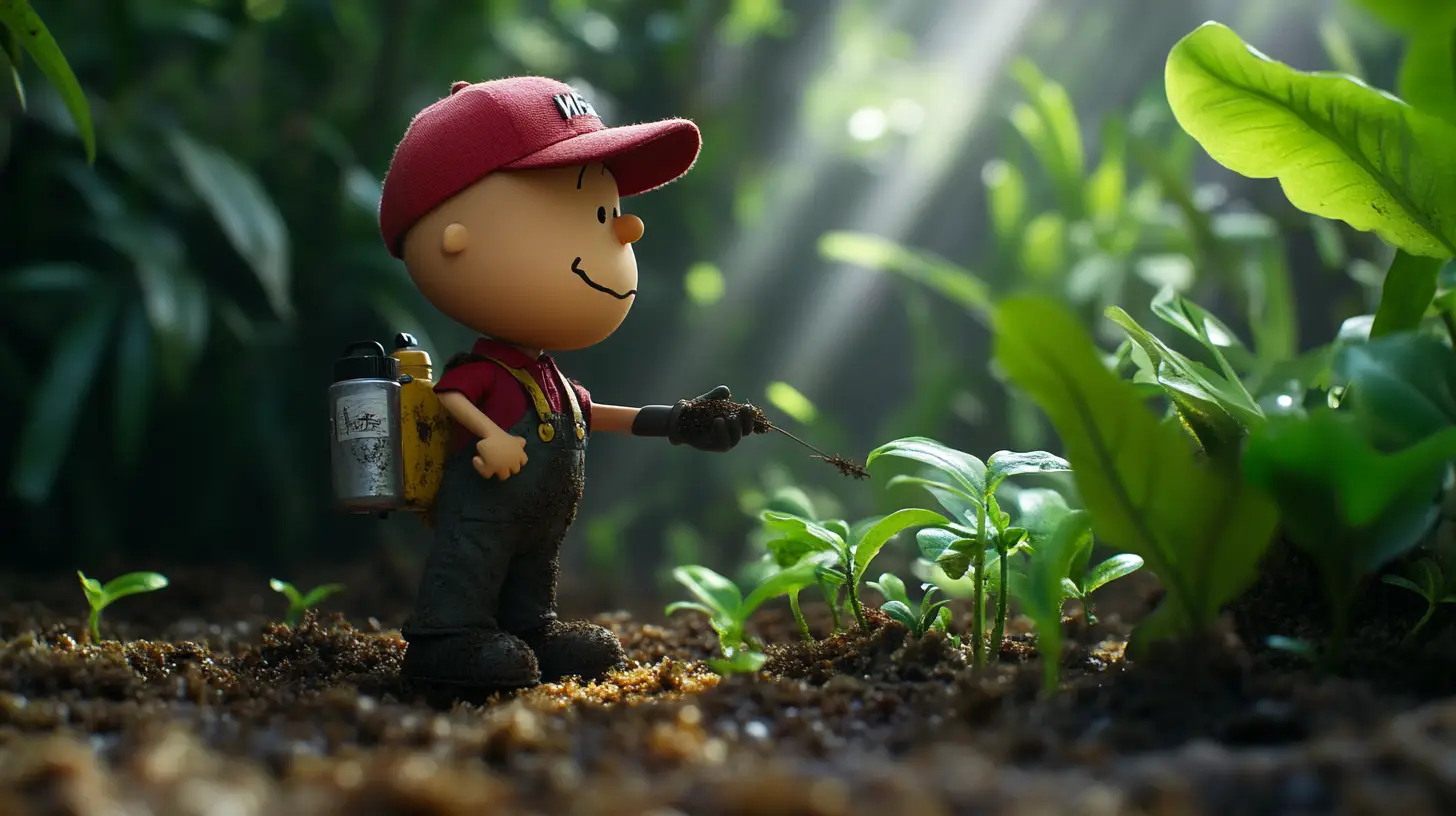
Table of Contents
If you’re trying to get rid of squirrels in Lakewood Ranch, FL, you’re not alone. These crafty critters may be cute to watch, but their clever antics can quickly turn frustrating when they invade homes, chew on wires, or dig up your lawn and garden. Known for their incredible memory, squirrels stash away thousands of nuts each year, using landmarks to help them remember where they buried each one. While this behavior helps local forests thrive, as some forgotten nuts grow into trees, it’s less helpful when your garden becomes their personal storage spot.
But there’s more to squirrels than just their appetite for acorns. They’re agile, leaping up to ten times their body length between trees, and even skilled swimmers when necessary. With their ever-growing teeth, they gnaw to keep them sharp—sometimes to the detriment of your attic insulation or outdoor furniture. As neighbors to these tenacious rodents, we want humane, effective ways to discourage their destructive behaviors while respecting their role in Lakewood Ranch’s natural ecosystem.
In this guide, we’ll explore practical, responsible strategies to get rid of squirrels, helping you reclaim your space without disrupting nature. From preventive measures to safe deterrents, we’ll share expert tips tailored for local residents, making squirrel control simpler, effective, and in harmony with our beautiful Lakewood Ranch surroundings.
Key Takeaways
- Prevention is Key: The best way to keep squirrels out of your home and garden is through preventive measures. Seal entry points, trim tree branches near your roof, and remove easy food sources like open trash or accessible bird feeders.
- Natural and Humane Repellents Work Well: Natural deterrents such as spices, peppermint oil, and predator scents can effectively discourage squirrels. Rotating these repellents regularly prevents squirrels from adapting to any one method.
- Professional Help Offers Long-Term Solutions: Licensed pest control professionals provide humane, legal, and comprehensive squirrel removal, including exclusion, trapping, and repairs. Their expertise ensures effective, long-term squirrel management while respecting local wildlife regulations.
- Understand Your Local Squirrel Species: Recognizing the types of squirrels common to Lakewood Ranch, like the Eastern Gray and Big Cypress Fox Squirrel, helps tailor your approach and identify potential issues, especially with protected species.
- Consistent Maintenance Prevents Future Problems: Routine inspections, ongoing exclusion measures, and habitat modifications are essential for keeping squirrels from returning. Regular maintenance reduces the likelihood of damage and keeps your property secure.
Understanding Squirrels in Lakewood Ranch
Squirrels are small to medium-sized rodents that many of us in Lakewood Ranch encounter daily, especially as they dart across yards or scamper up trees. While fascinating in their diversity and adaptability, these members of the Sciuridae family can sometimes become unwelcome guests. To truly get rid of squirrels effectively, it helps to understand their behavior, diet, and unique traits.
With over 200 species worldwide, squirrels are divided into three main types: tree squirrels, ground squirrels, and flying squirrels. Each type has distinct behaviors and physical adaptations. Tree squirrels, for instance, have slender bodies and long, bushy tails that help with balance, and sharp claws to climb quickly and effortlessly. Flying squirrels, on the other hand, have a membrane called the patagium, allowing them to glide impressively between trees. Ground squirrels prefer the earth, creating elaborate burrow systems to shelter and store food.
Native to almost every continent except Australia and Antarctica, squirrels have adapted remarkably to diverse environments, from dense forests to bustling cities. They thrive in the warm climate and suburban greenery of Lakewood Ranch, often finding ample food and shelter. Primarily omnivorous, squirrels forage for nuts, seeds, fruits, and fungi, but they’re also opportunistic feeders and may consume insects or even eggs if accessible.
Known for their agility and quick reflexes, squirrels are diurnal creatures, meaning they’re most active during the day. Their keen eyesight and flexibility make them exceptional climbers, but these same traits also mean they can quickly become a nuisance. When squirrels establish themselves in attics or gardens, they bring along a few problems: chewed wires, trampled plants, and the steady clatter of tiny feet.
To address a squirrel issue effectively, it’s essential to respect their role in the local ecosystem while protecting your property. By employing humane deterrents and understanding their habits, you can take control of your space, ensuring that both you and Lakewood Ranch’s squirrel population can coexist peacefully. In this way, an informed approach can help keep your yard and home free from uninvited squirrel guests, while still appreciating their place in our natural world.
Common Squirrel Species in Lakewood Ranch – An Overview
In Lakewood Ranch, Florida, four main types of squirrels are commonly encountered, each bringing unique characteristics and habits to the local ecosystem. The Eastern Gray Squirrel (Sciurus carolinensis) is the most familiar sight around town. Known for its adaptability to urban and suburban settings, this squirrel measures about 18 inches in length, including a bushy tail, and varies in color from light silver-gray to almost pure white, with occasional all-black variations. These diurnal creatures are frequently spotted darting across lawns, gathering food, and navigating trees with ease.
The Fox Squirrel (Sciurus niger), one of Florida’s largest squirrel species, can grow up to 24 inches long and weigh nearly three pounds. These squirrels often have a striking reddish or orange-brown coat, setting them apart from other species. Fox Squirrels favor open woodland areas but can sometimes be seen in the outskirts of Lakewood Ranch. Their size and bold coloring make them a memorable sight, although they tend to be more elusive than Eastern Grays in densely populated areas.
A unique and protected subspecies of the Fox Squirrel, the Big Cypress Fox Squirrel (Sciurus niger avicennia), also resides in Southwest Florida, including parts of Lakewood Ranch. This squirrel, often called the mangrove or Everglades fox squirrel, has a striking appearance with a black head, white nose, and white feet. As a rare find, it’s particularly treasured by wildlife enthusiasts in the region and is known to inhabit mangrove areas and cypress forests.
Rounding out the group is the Southern Flying Squirrel (Glaucomys volans), a nocturnal species that is much smaller and less commonly seen due to its nighttime activity. Equipped with a furry membrane called the patagium, this squirrel can glide between trees—a remarkable adaptation allowing it to cover long distances without touching the ground. Though rarely spotted during daylight hours, Southern Flying Squirrels are present in Lakewood Ranch and are occasionally noticed around dawn or dusk.
Understanding these four squirrel species and their distinct habits is helpful for residents seeking to manage squirrel activity on their property. Recognizing the differences in behavior and habitat preferences can guide effective, humane approaches to squirrel control, tailored to the unique environment of Lakewood Ranch.
Effective Natural Repellents to Keep Squirrels Away
If you’re dealing with squirrels in your garden or yard in Lakewood Ranch, there are several natural repellents that can help keep them at bay without causing harm. A great first approach is using spices like cayenne pepper, red pepper flakes, or paprika. Sprinkling these around your plants or other areas you want to protect can deter squirrels, though you’ll need to reapply them after rain to maintain their effectiveness. For a refreshing twist, mint can be highly effective; placing cotton balls soaked in peppermint oil in problem areas or planting mint directly in your garden can create an uninviting environment for squirrels.
Apple cider vinegar is another simple remedy. By mixing it with water in a spray bottle, you can apply it to plants and surfaces squirrels frequent. Likewise, used coffee grounds can be scattered around your garden for both a natural fertilizer and an extra layer of squirrel defense. Garlic works similarly; either spray a mixture of chopped garlic, pepper, and vinegar or plant garlic bulbs directly for a continuous deterrent.
Another option is introducing predator scents into the area. Products that mimic the scent of fox or other predator urine can signal danger to squirrels, encouraging them to steer clear. You might also consider planting strong-smelling flowers like marigolds, nasturtiums, or crown imperials, which squirrels typically avoid due to their intense fragrances. Adding pet hair around your garden, especially from cats or dogs, can further reinforce the idea that a predator is nearby.
For a unique approach, try aluminum foil. Squirrels dislike the texture and sound of foil, so placing strips in their frequented spots can deter them. Motion-activated sprinklers and ultrasonic devices are more advanced but effective; sprinklers surprise squirrels with water bursts, while ultrasonic devices emit high-frequency sounds that squirrels find unpleasant.
It’s essential to use a combination of these methods and rotate them periodically, as squirrels may adapt to a single repellent over time. Reapply after rain, and keep these deterrents in rotation for a squirrel-free garden in Lakewood Ranch. With persistence and variety, you can enjoy your garden without uninvited squirrel guests.
How To Get Rid Of Squirrels In Lakewood Ranch
If squirrels are causing a nuisance around your property in Lakewood Ranch, professional pest control methods offer effective, humane solutions that prioritize both safety and long-term prevention. The first line of defense is exclusion, where all potential entry points, like small gaps and attic vents, are sealed with durable materials such as metal flashing or hardware cloth. This prevents squirrels from gaining access to your home in the first place.
When it comes to trapping, professionals often use live cage traps, typically around 5″ x 5″ x 18″ or larger, which are baited with appealing treats like peanut butter. Traps are placed near active entry points or areas with frequent squirrel activity, ensuring efficient capture. To follow ethical practices, captured squirrels are relocated at least 10 miles away. However, this process is often best left to professionals, as improper trapping and relocation can harm squirrels and is sometimes regulated.
Habitat modification is another essential part of professional squirrel control. By trimming tree branches that overhang near buildings and installing metal collars on tree trunks, pest control teams make it harder for squirrels to access roofs or create nesting sites near homes. Reducing food sources, like accessible bird feeders, can also discourage them from sticking around.
For areas where squirrels persist, commercial repellents are used, often containing predator urine or capsaicin (the compound in chili peppers). These repellents are applied to targeted areas according to product instructions, deterring squirrels without harming them. To add another layer, ultrasonic devices that emit high-frequency sounds can be installed, especially when combined with motion-activation for intermittent bursts that prevent squirrels from adapting.
Professional removal services in Lakewood Ranch go beyond simple eviction. Repair and sanitization are crucial steps after removal, addressing any structural damage squirrels may have caused, such as chewed wires or damaged insulation. Sanitizing the area also eliminates droppings, parasites, and odors that might attract new squirrels.
Lastly, preventative maintenance ensures long-term results. Professionals recommend regular inspections to catch any new entry attempts early and maintain exclusion barriers, habitat modifications, and repellent applications. By working with licensed wildlife control experts, you can be assured that removal methods comply with local wildlife regulations, and any necessary permits for protected species are properly obtained. In Lakewood Ranch, these humane, structured approaches allow for effective squirrel management that respects both your property and the surrounding wildlife.
Final Thoughts on Effectively Getting Rid of Squirrels
In summary, if you’re aiming to get rid of squirrels in Lakewood Ranch, FL, there are plenty of humane, effective options available. From natural repellents like spices and mint to professional methods such as exclusion and trapping, the key is to tailor your approach based on your unique situation. Understanding the types of squirrels you’re dealing with and their habits allows you to manage them responsibly, ensuring your property remains protected while respecting the role squirrels play in our local ecosystem.
With a combination of natural and professional solutions, Lakewood Ranch residents can achieve a peaceful balance, keeping their homes and gardens squirrel-free while preserving the area’s natural charm.
Frequently Asked Questions (FAQs)
Why are squirrels a problem on my property?
Squirrels may cause various issues on your property, including chewing on wires, digging up plants, or nesting in attics. Their sharp teeth, which continually grow, lead them to gnaw on hard materials, potentially damaging insulation, siding, or garden structures. Additionally, they may contaminate spaces with droppings, attracting parasites.
What are the most common types of squirrels in Lakewood Ranch, FL?
The main types of squirrels in Lakewood Ranch are:
- Eastern Gray Squirrel: Most common, active in urban and suburban areas.
- Fox Squirrel: Larger and often found on property edges or wooded areas.
- Big Cypress Fox Squirrel: A rare, protected subspecies in Southwest Florida.
- Southern Flying Squirrel: Nocturnal and less frequently seen.
What natural repellents work well for deterring squirrels?
Effective natural repellents include:
- Spices: Cayenne pepper, red pepper flakes, and paprika.
- Mint: Peppermint oil or mint plants.
- Apple Cider Vinegar: Mixed with water and sprayed around problem areas.
- Coffee Grounds and Garlic: Both can be scattered in gardens or used in sprays.
- Predator Scents: Products that mimic fox urine.
Rotating repellents every few weeks prevents squirrels from adapting to one scent.
How can I prevent squirrels from entering my attic?
Exclusion is the most effective prevention method. Inspect your home for small gaps or openings and seal them with durable materials like metal flashing or hardware cloth. Trim tree branches near the roof, and check vents or chimneys, adding caps if necessary. Regular inspections can help you catch new entry points early.
Is trapping squirrels legal in Lakewood Ranch, FL?
Trapping squirrels is legal in Florida, but there are specific regulations regarding relocation and humane treatment. Use live traps, place them near entry points, and check them twice daily. Relocate squirrels at least 10 miles away to prevent return. Always consult local wildlife control professionals for guidance and adherence to regulations, especially for protected species.
What professional pest control methods are available for squirrel removal?
Professional pest control teams can provide various services:
- Exclusion: Sealing potential entry points.
- Trapping and Relocation: Safe trapping followed by humane relocation.
- Habitat Modification: Tree trimming, food source reduction, and installing metal collars.
- Repellents: Applying commercial deterrents like capsaicin or predator urine.
- Ultrasonic Devices: Motion-activated sounds unpleasant to squirrels.
- Repair and Sanitization: Fixing damage and cleaning squirrel-inhabited areas.
What are the benefits of hiring a professional squirrel removal service?
Professionals ensure that squirrels are removed safely and legally, particularly when dealing with protected species like the Big Cypress Fox Squirrel. They also provide comprehensive services, from trapping to exclusion and damage repair, and use humane and environmentally responsible methods. This approach minimizes future issues and offers long-term solutions that prevent re-entry.
Are ultrasonic devices effective for squirrel control?
Ultrasonic devices can be effective as part of a comprehensive approach, especially when motion-activated and set to emit intermittent bursts, preventing squirrels from becoming accustomed to the sound. However, they are often most effective when combined with other methods, like exclusion and repellents.
How often should I reapply natural repellents?
Reapply natural repellents every two to three weeks, or after rain, to maintain effectiveness. Rotating different repellents (such as using spices one week and peppermint oil the next) helps prevent squirrels from getting used to any single method.
What is habitat modification, and how does it deter squirrels?
Habitat modification involves making your property less appealing to squirrels by:
- Trimming tree branches: Keeps squirrels from easily accessing roofs.
- Removing food sources: Adjusting bird feeders and securing trash.
- Adding tree collars: Prevents squirrels from climbing certain trees.
These adjustments encourage squirrels to seek food and shelter elsewhere.
Are squirrels protected in Florida?
Some squirrels, like the Big Cypress Fox Squirrel, are protected due to their limited habitat and declining population. It’s important to follow Florida’s wildlife regulations when handling or relocating squirrels. If you suspect you have a protected species on your property, consult a licensed pest control professional.
Can I use household items to deter squirrels?
Yes, several household items can deter squirrels effectively:
- Aluminum Foil: Place strips in frequented areas; squirrels dislike the texture.
- Pet Hair: Scatter around the garden; the scent of predators can discourage them.
- Coffee Grounds: Scatter used grounds in problem areas; the smell repels squirrels.
How can I protect my bird feeders from squirrels?
To squirrel-proof bird feeders:
- Use squirrel-resistant feeders designed with baffles.
- Place feeders on metal poles rather than trees.
- Install baffles or metal collars below feeders to prevent climbing.
- Clean up spilled birdseed to minimize attraction.
What are the signs of a squirrel infestation in my home?
Signs of a squirrel infestation include:
- Scratching or scurrying sounds in attics, walls, or ceilings.
- Visible entry holes near the roof or eaves.
- Chewed wires, insulation, or wood near entry points.
- Droppings around the attic or crawl spaces.
- Nesting materials like leaves, paper, or twigs.
What should I do if I find baby squirrels on my property?
If you encounter baby squirrels, avoid touching them directly. If they’re outside but not in danger, leave them alone, as the mother will likely return. If they are in a dangerous area or appear abandoned, contact a licensed wildlife rehabilitator or pest control professional. Attempting to relocate or handle them may be illegal.
How often should I inspect my home for squirrel entry points?
It’s recommended to inspect your home seasonally, especially before fall and winter when squirrels seek warm shelter. Check for gaps, holes, or weakened areas around the roof, eaves, vents, and foundations to ensure any potential entry points are sealed.

